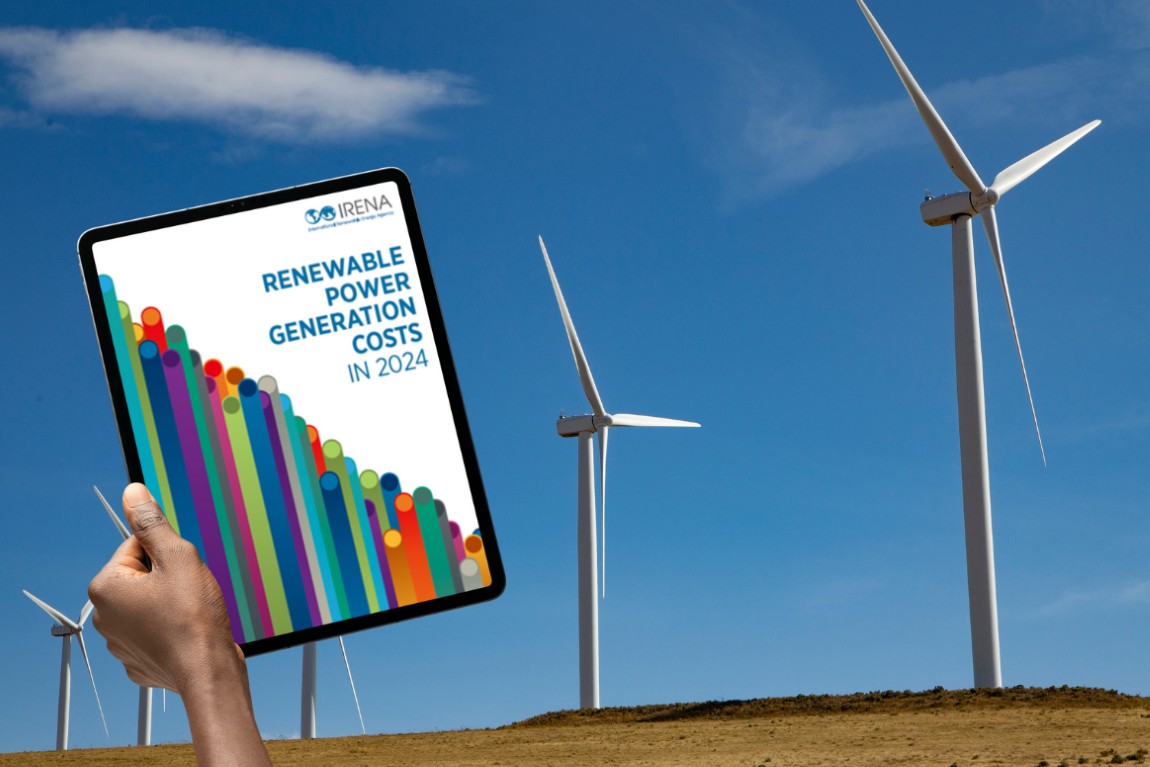Renewable Energy Maintains Price Advantage Over Fossil Fuels, IRENA Report Confirms
New data released this week points to a promising future for clean energy. In 2024, Brasil was the leading developing country in renewable energy additions

Technological innovation, competitive supply chains, and economies of scale are among the key factors driving renewable energy sources to remain more economically viable than fossil fuels. That is the main conclusion of the latest report by the International Renewable Energy Agency (IRENA), which presents a detailed analysis based on 2024 data.
According to the study, 91% of all renewable energy projects commissioned last year were more cost-effective than any new fossil fuel alternative, further strengthening the economic case for renewables. The report highlights that renewable energy sources not only compete with fossil fuels on cost but also offer added benefits, such as reducing dependence on international fuel markets and enhancing energy security.
“Renewables are now nearly equal to fossil fuels in terms of global installed capacity — and this is just the beginning. Last year, all newly installed power capacity worldwide came from renewable sources, and across every continent, renewable expansion outpaced that of fossil fuels. The future of clean energy is no longer a promise — it is a fact,” said United Nations Secretary-General António Guterres at the report’s launch in New York.
The launch was also attended by Ambassador André Corrêa do Lago, President of COP30, who welcomed the findings. “This report shows that addressing climate change is not only an economic opportunity, but also a tremendous chance to improve people’s lives and create jobs. We must always remember that while climate change poses a major challenge, our response is possible. There are solutions, and this report is one of the most useful tools we have as we prepare for COP30,” he stated, considering it a historic study.
Another report, published in April during a COP30 preparatory event in Germany, further reinforced these findings. It found that investments in clean energy and energy efficiency drive productivity and innovation, and that submitting and implementing enhanced Nationally Determined Contributions (NDCs) can not only prevent significant economic losses for countries, but also boost global GDP by about 3% by 2050 and up to 13% by 2100.
What About Brasil?
In 2024, Brasil ranked fourth globally in renewable energy additions, surpassed only by China, the United States, and the European Union, making it the leading developing country in the category. Hydropower remains the dominant source in the national energy mix, accounting for more than 50% of electricity generation, but solar and wind power are growing rapidly.
In this market, Brasil continues to be a global leader in cost-efficiency. Onshore wind energy in the country had a low Levelized Cost of Energy (LCOE) of USD 30/MWh—comparable to that of China. Solar photovoltaic energy reached an LCOE of USD 48/MWh in 2024, demonstrating its competitiveness with fossil fuels.
Globally, solar photovoltaic energy was on average 41% cheaper than the least expensive fossil fuel alternatives, while onshore wind projects were 53% more affordable.
Key Findings from the Report:
Stable and predictable regulatory frameworks are essential for reducing risk and attracting capital;
Mitigating financial risks is critical to scaling up renewables in both mature and emerging markets;
Instruments such as power purchase agreements (PPAs) are vital for securing affordable financing;
Stable political environments and clear, reliable procurement frameworks are key to drawing investors.
The report also notes that regions in the Global South—including Asia, Africa, and South America—hold the greatest renewable potential and the highest learning rates. As a result, they are expected to experience sharper cost declines, despite a global context marked by a crisis in multilateralism that affects climate negotiations. IRENA cautions that geopolitical shifts—including trade tariffs, raw material supply bottlenecks, and manufacturing dynamics—pose risks that could temporarily raise costs.
Translation: Tadeu Azevedo (POET/UFC)
Proofreading: Michel Emmanuel Felix François (POET/UFC)
